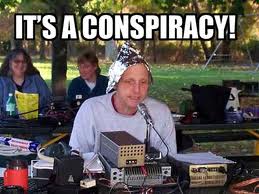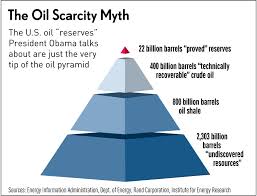Depressing, Isn’t It?
 Saturday, March 23, 2013 at 3:00AM
Saturday, March 23, 2013 at 3:00AM  Looking at the world it is easy to get depressed. Everything is tinged with corruption. Food, money, bodies, minds, news, and the whole population are all over-processed.
Looking at the world it is easy to get depressed. Everything is tinged with corruption. Food, money, bodies, minds, news, and the whole population are all over-processed.
Look at the Cyprus bank crisis: money is over-processed. Look in the mirror: are you over-processed? Are you watching the Kardashians? Benny Hinn? Fox News? Is your mind over-processed?
The system, The Man, "the powers that be," or Babylon as the Bible calls it, thinks itself immortal and immune. Revelation 18:7 tells us what she thinks:
 In her heart she boasts,
In her heart she boasts,
‘I sit enthroned as queen.
I am not a widow;
I will never mourn.’
But we as Christians know the ultimate outcome as the next verse in Revelation tells us:
8 Therefore in one day her plagues will overtake her:
death, mourning and famine.
She will be consumed by fire,
for mighty is the Lord God who judges her.
 If we are in Babylon we will suffer along with it. Verse 4 tells us:
If we are in Babylon we will suffer along with it. Verse 4 tells us:
“‘Come out of her, my people,’
so that you will not share in her sins,
so that you will not receive any of her plagues;
5 for her sins are piled up to heaven,
and God has remembered her crimes.
My main purpose of this blog is to understand that we cannot avoid being in Babylon, but we can avoid being of Babylon. Babylon is extremely intrusive. To paraphrase the radio cartoon character Chickenman "It's everywhere. It's everywhere." One of my proudest blogging moments was a comment by fellow blogger Eric Anderson at Universe of Lies. Commenting on a post about the Agricultural Industrial Complex he said, "Only Dennis would see Babylon in a chicken sandwich—and he is right."
 Yes, even food is over-processed, and it is depressing that there is not a whole lot that can be done about it. Yes, there are a few things you can do. Cook your own food. Know your food. Grow your food. Eat with thinking. It is depressing because most people will not bother. I have lost over 30 pounds mostly by just writing down what I eat in an e-journal called MyFitnessPal and thinking about my food choices. Do the best you can.
Yes, even food is over-processed, and it is depressing that there is not a whole lot that can be done about it. Yes, there are a few things you can do. Cook your own food. Know your food. Grow your food. Eat with thinking. It is depressing because most people will not bother. I have lost over 30 pounds mostly by just writing down what I eat in an e-journal called MyFitnessPal and thinking about my food choices. Do the best you can.
Do you think I am exaggerating the problem? If so watch this documentary, Food Inc. If anything, I have not talked about it enough. But be warned, unless you are doing a lot more about the food you eat than most Americans, you will be depressed too.
 Bible,
Bible,  Environment,
Environment,  Health,
Health,  Leaving Babylon
Leaving Babylon 








